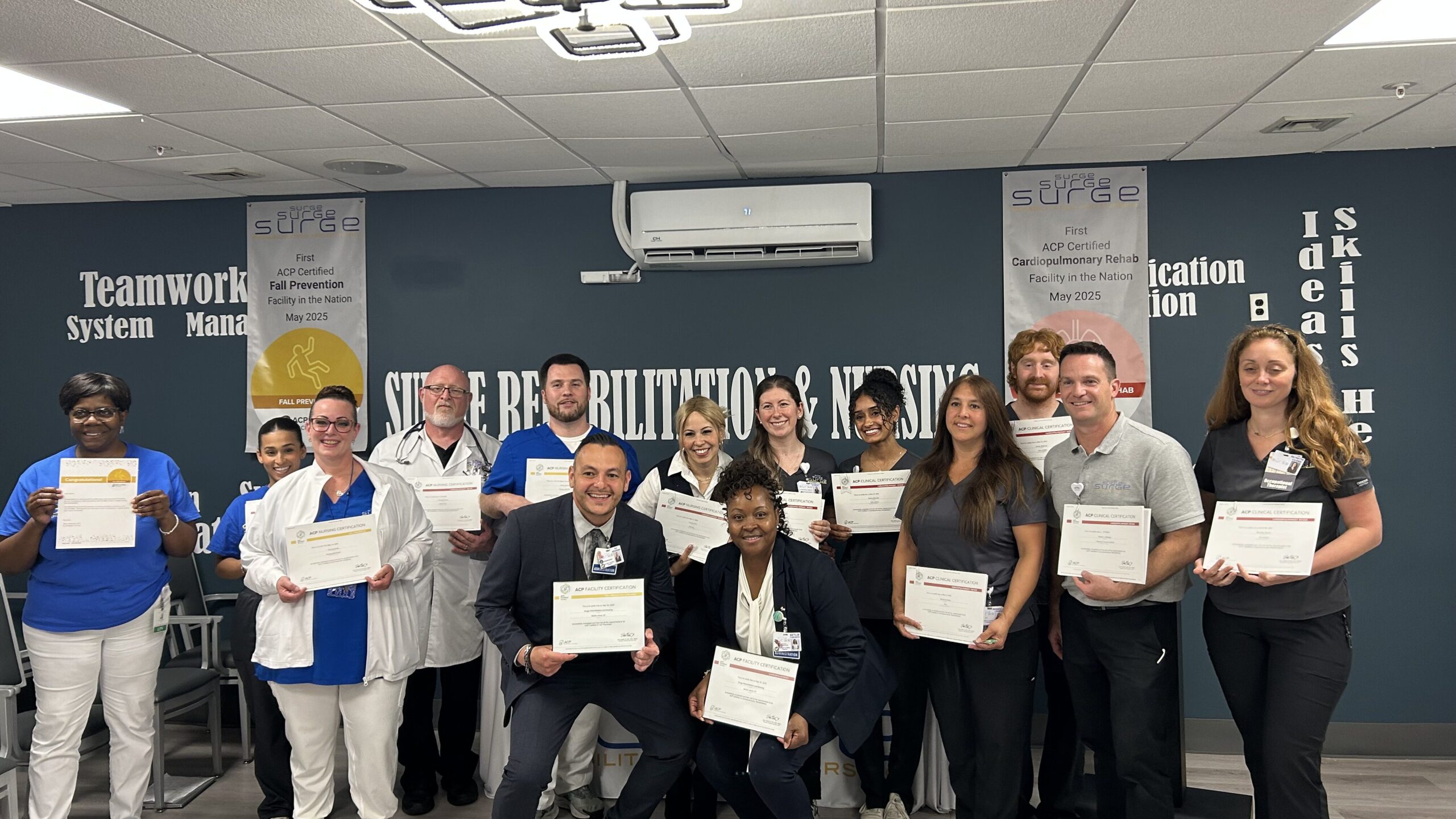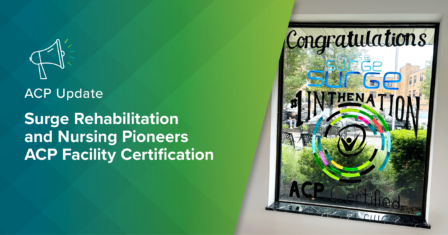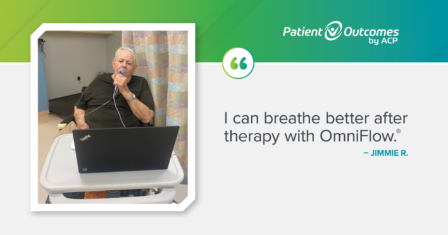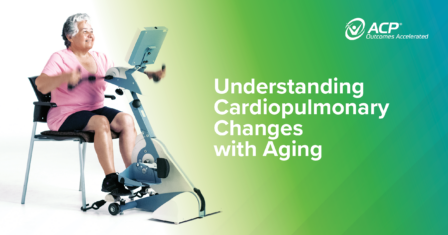Last year, we launched the ACP Certified program to help our partners enhance their clinical expertise, improve patient outcomes, and stand apart in their communities. Since then, it has been our pleasure to see rehab and nursing clinicians across the country find value in becoming certified—for themselves and their patients. We are thrilled to share that Surge Rehabilitation and Nursing in Middle Island, NY, has become the first facility in the nation to achieve ACP Certification in both Cardiopulmonary Rehab and Fall Prevention. This remarkable achievement underscores Surge’s commitment to clinical excellence and innovation in post-acute care.
Elevating Cardiopulmonary Care
To become ACP Certified in Cardiopulmonary Rehab, Surge’s staff demonstrated excellence in specialized therapy interventions and clinical protocols and in integrating advanced technology to support cardiopulmonary recovery and long-term management.
Following extensive training and the implementation of evidence-based practices, Surge reported the following improvements in patient outcomes:
- 54% of patients required less supplemental oxygen by discharge
- 84% of patients showed improvement in BORG score from admission to discharge, indicating reduced perceived breathlessness
- Average increase in ambulation distance from admission to discharge was 93 feet, reflecting endurance and functional mobility gains
- Average length of stay decreased from 52 days to 37 days, showing increased efficiency and care delivery
- 93% of patients demonstrated improvement in Timed Up and Go (TUG) scores, indicating better functional mobility
“This certification is a milestone and affirmation of a promise to our residents and families that we deliver the highest level of cardiopulmonary care available today,” said Ahmed Joudah, Administrator of Surge Rehabilitation and Nursing.
Leading the Way in Fall Prevention
Falls are a significant risk for older adults, and Surge is taking a proactive, interdisciplinary approach to reduce risk and optimize clinical outcomes. Since implementing the evidence-based practices outlined in the Fall Prevention certification, the Surge team has achieved notable improvements:
- Average increase in ambulation distance of 56 feet from admission to discharge
- 81% of patients demonstrated improvement in TUG scores, and 30-second sit-to-stand scores improved by 5 repetitions, showing better functional mobility and reduced fall risk
In their program reflection, they had this to share:
“…participating in the ACP Fall Prevention Program has been a transformative journey for [their] interdisciplinary team, enhancing not only [their] clinical outcomes but also [their] communication, collaboration, and shared commitment to resident safety. One of the most critical elements that [they] have embraced is the importance of clear and consistent communication across all disciplines, ensuring that every team member – from therapists to nursing staff to physicians – is aligned on goals, strategies, and individual resident needs.”
Celebrating Clinical Excellence

As an ACP-certified facility, Surge continues to lead by example in clinical excellence, ongoing education, and interdisciplinary collaboration. This dual certification is not just a milestone for Surge but also ACP, and we are grateful for their exemplary partnership and dedication to better patient outcomes.
It has been an incredible experience to witness the journey of ACP Certification, from its initial concept and development to its successful launch, culminating in the achievement of the first two facility certifications by Surge. The staff and administration at Surge are committed to ensuring the individuals under their care receive the best possible care, using all available resources to maximize clinical outcomes.
Kelly Contreras, Senior Manager, Remote Clinical Services
Become ACP Certified
Ready to level up your clinical expertise? Learn more about how you and your facility can become ACP Certified.
MRK-BLOG-027
Since launching the ACP Certified program, it has been our pleasure to see rehab and nursing clinicians nationwide find value in becoming certified. We are thrilled to share that Surge Rehabilitation and Nursing in Middle Island, NY, has become the first facility in the nation to achieve ACP Certification. Read on to learn how their Cardiopulmonary Rehab and Fall Prevention certifications are enhancing patient care.








